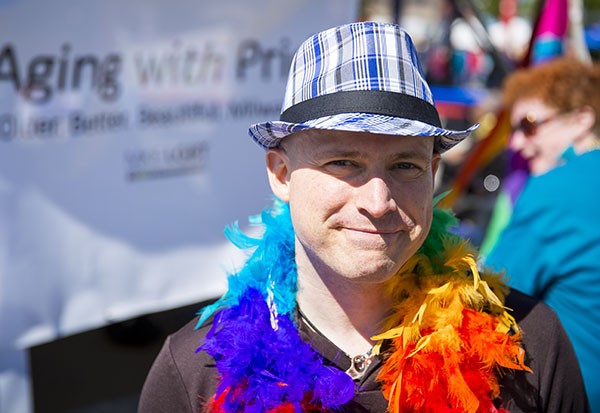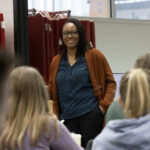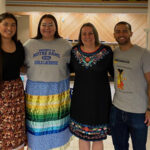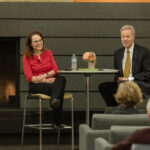
Older LGBT adults consider Milwaukee a gay-friendly city, but say there’s room for improvement when it comes to senior services, their primary care doctors and their elected officials.
These findings are highlighted in a new study that looks at the experiences of Milwaukee residents 50 and older who are lesbian, gay, bisexual or transgender (LGBT).
For the study, called The New Day Project, 255 LGBT residents ages 50 to 89 weighed in on community strengths and needs as they consider aging in the Milwaukee area. Respondents shared their opinions about health care services, community safety, housing, transportation and more. The study released Monday was led by Mark Williams, a social work researcher at UWM’s Helen Bader School of Social Welfare.
Similar studies done in other communities found that older LGBT residents have concerns common to all older adults, including accessible transportation, affordable housing, and social opportunities to relieve isolation. But LGBT adults who suffered stigma and discrimination earlier in life had additional worries, as well as health issues tied to the stress of coping with those experiences, Williams said.
“They are concerned about how culturally competent their health care providers are and how safe it may be for them to openly identify as LGBT if they need to receive in-home care or move into senior housing, assisted living, or nursing home facilities,” he said.
Forty-two percent of the respondents in his study said they did not always feel safe where they lived.
Although only 7 percent were living in senior housing, more than half anticipated needing senior housing in the future, and there was considerable uncertainty about how LGBT friendly they would find in-home services, senior housing and nursing homes.
“Some older adults face the choice of either receiving competent care or being open about being LGBT,” Williams said. “Having to renegotiate the closet later in life is stressful and, as a community, we can do better for them.”
Among Williams’ other findings:
- 83 percent of respondents said Milwaukee was somewhat or very LGBT friendly.
- 44 percent said local services were LGBT friendly.
- 50 percent anticipated needing legal services to help them understand and navigate the implications of recent changes in marriage, divorce and estate planning.
- 43 percent were receiving help for a health issue.
- 25 percent were providing care for another person.
- 17 percent were both receiving help for personal health issues and providing care for another person.
This last finding, Williams said, points to the need for support services that reduce isolation and provide respite and long-term care.
The New Day Project comes at a time when the National Institutes of Health have acknowledged that the LGBT community is under-researched and underserved. Some cities, including Minneapolis-St. Paul and Chicago, recently responded by creating affordable, LGBT-friendly senior housing.
The study was conducted in cooperation with the LGBT Community Center’s SAGE program, the local chapter of a national organization that addresses aging issues in the LGBT community. Williams recently completed a national study of 2,500 individuals that found that older LGBT adults who are partnered or married are healthier, less depressed, less stressed, and more satisfied with life than their single LGBT peers.







